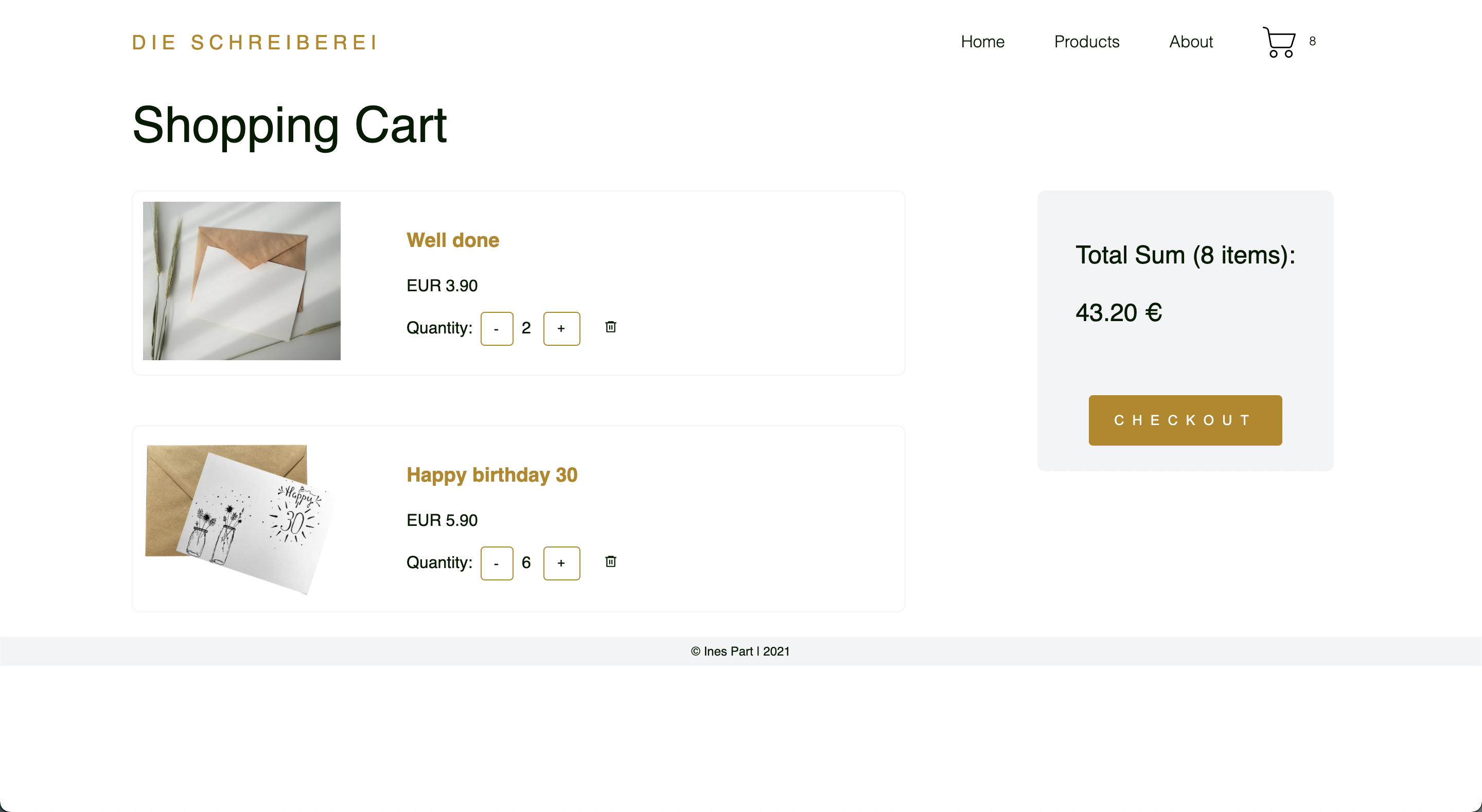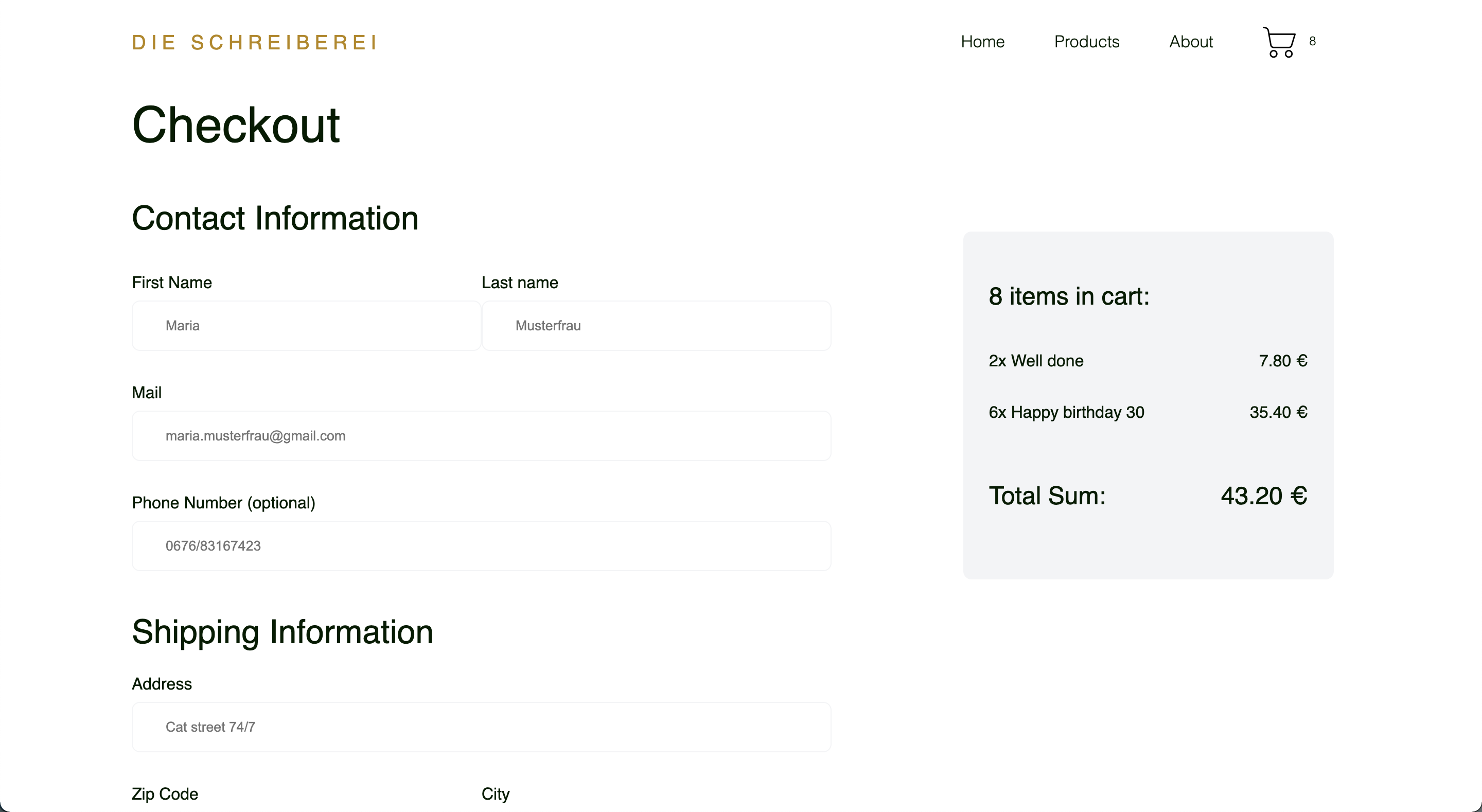Visit the deployed ecommerce shop of Die Schreiberei here: https://ecommerce-die-schreiberei.herokuapp.com/
This ecommerce project is part of a web development course. Hence, Die Schreiberei is no actual company and no purchases can be made.
- Next.js
- React
- Postgres
- PSQL
- Emotion
- Jest unit tests
- Cypress E2E tests
- Typescript
- Bootstrap
- A products page where all the products are listed
- A page for each single product with the ability to add an amount to the cart
- A shopping cart page containing a list of all products that have been added to the cart with the ability to change the amount; it also shows the total price of all products
- Checkout page which shows the total and asks for shipping and payment information
- A thank you page after a checkout has been completed
- The header will show a shopping cart with the current number of items on all pages
- Responsive header and websites
- Clone the repo to your local machine with
git clone <repo> - Setup the database by downloading and installing PostgreSQL
- Create a user and a database
- Create a new file .env
- Copy the environment variables from .env-example into .env
- Replace the placeholders xxxxx with your username, password and name of database
- Install dotenv-cli with
yarn global add dotenv-cli - Run
yarn installin your command line - Run the migrations with
yarn migrate up - Start the server by running
yarn dev
The easiest way to deploy your Next.js app is to use Heroku.
- Sign up for Heroku: signup.heroku.com
- Create a new App
- Choose a name and select the "Europe" Region
- Click on the button in the middle called "Connect to GitHub"
- Search for your repository in the search box at the bottom of the page and click on the "Connect" button Click on the button for "Enable Automatic Deploys"
- Go back to the Overview tab and click on "Configure Add-On"
- Search for "Postgres" and select "Heroku Postgres" from the results
- Trigger a deploy by pushing your repo to GitHub



